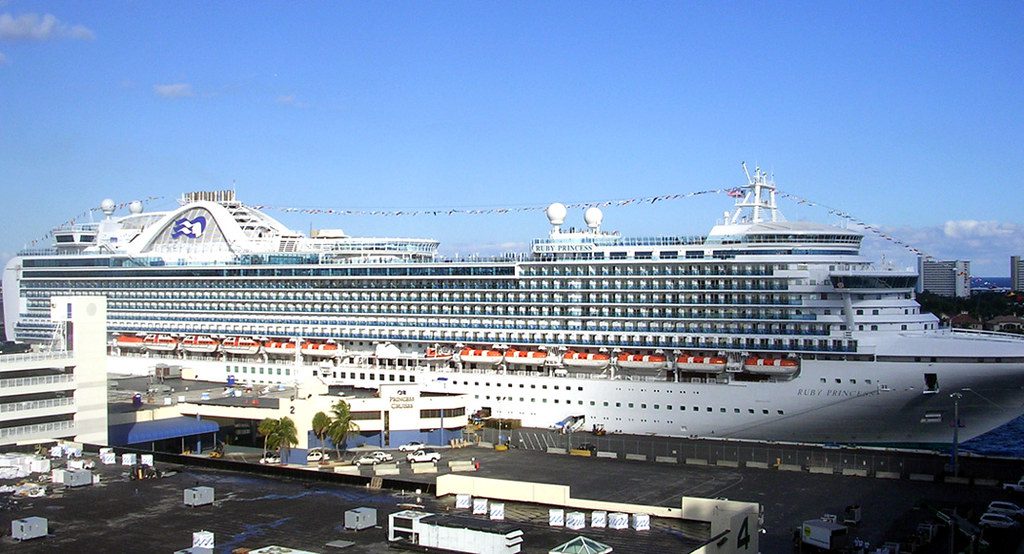 In a sweeping legal triumph, passengers aboard the ill-fated Ruby Princess cruise ship have successfully brought Carnival Australia to account, prevailing in a landmark class action lawsuit tied to a catastrophic COVID-19 outbreak. The Australian Federal Court delivered a damning verdict, declaring the cruise line’s actions in 2020 negligent while exposing misleading representations made to passengers.
In a sweeping legal triumph, passengers aboard the ill-fated Ruby Princess cruise ship have successfully brought Carnival Australia to account, prevailing in a landmark class action lawsuit tied to a catastrophic COVID-19 outbreak. The Australian Federal Court delivered a damning verdict, declaring the cruise line’s actions in 2020 negligent while exposing misleading representations made to passengers.
Presiding over the case, Justice Angus Stewart meticulously dissected Carnival Australia’s actions, unveiling a concerning trail of negligence. Stewart pointed out that the cruise operator was acutely aware that their screening measures were inadequate in catching all possible infections, citing two previous virus outbreaks aboard other ships in the company’s fleet occurring just a month prior.
With over 2,600 passengers caught in the vortex of this harrowing ordeal during a voyage from Sydney in March 2020, the cruise ship became a petri dish, resulting in over 660 COVID-19-positive cases and, tragically, 28 fatalities.
The class action, skillfully spearheaded by the plaintiffs, accused Carnival Australia and its owner/operator, Princess Cruise Lines, of gross negligence, alleging a breach of duty of care and a violation of Australian Consumer Law.
In his comprehensive ruling, Justice Stewart affirmed the passengers’ accusations, stating, “To the respondents’ knowledge, to proceed with the cruise carried a significant risk of a coronavirus outbreak with possibly disastrous consequences, yet they proceeded regardless.” This statement underscores the cruise line’s negligence and highlights their apparent disregard for passenger safety.
Despite these revelations, Carnival Australia’s response was measured, with a company spokesperson expressing that they are diligently reviewing the judgement. The statement also acknowledged the immense pain caused by the pandemic, especially to those affected by this particular cruise.
Justice Stewart also delved into the deceptive nature of the company’s communications with passengers before the voyage, exposing the false assurances that painted the trip as “reasonably safe.” He elaborated, “I have found that before the embarkation of passengers on the Ruby Princess for the cruise in question, the respondents knew or ought to have known about the heightened risk of coronavirus infection on the vessel and its potentially lethal consequences.”
Lead plaintiff Susan Karpik, whose case of COVID-19 was mild, witnessed her husband, Henry, endure a severe battle with the virus, which saw him placed in an induced coma. After two gruelling months in the hospital, he survived, but not without lasting effects. Mrs Karpik, a retired nurse, sought $360,000 in damages but was awarded $4,400 plus interest for out-of-pocket medical expenses, as her case did not meet the claimable threshold for personal injury.
Reflecting outside the court, Mrs Karpik expressed her hope that this legal victory would bring solace to the passengers, acknowledging the deep losses experienced by many. “Most of those people were probably on the cruise celebrating a significant event in their life and ended up losing their partner or somebody special to them.”
Vicky Antzoulatos, the plaintiffs’ attorney, hailed the result as a comprehensive victory, emphasizing its potential to set a global precedent. “In terms of precedence, this is the first successful cruise ship class action in the world so I think cruise ships will be paying attention to this case and the comprehensive findings that the court made,” she stated, optimistically concluding that Carnival Australia should now proactively settle the remaining claims to spare further litigation.
This watershed moment in legal history is a stern warning to the cruise industry. It is a testament to collective action’s power, marking a new chapter in passenger rights and corporate accountability.
Written by: Michelle Warner



















